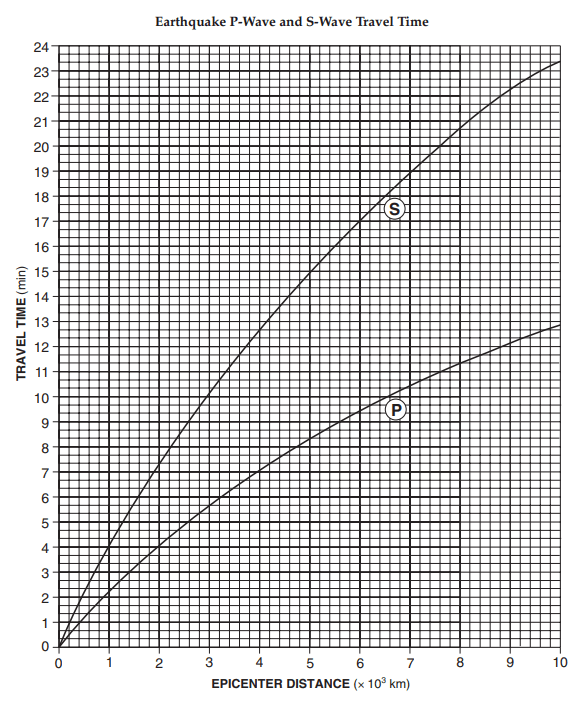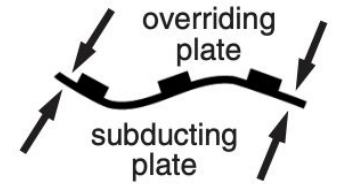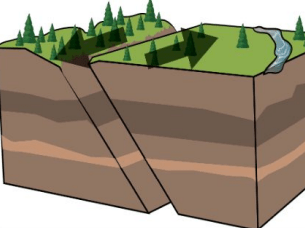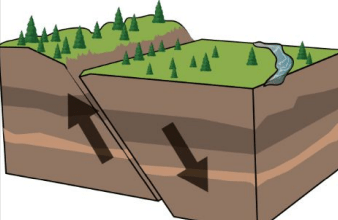Which seismic waves arrive first, P-waves or S-waves?
P-waves.
What is the most common cause of a tsunami?
Large earthquakes below or near the ocean floor.
What page of the reference table is this?

10
What two layers make up the lithosphere?
Crust and rigid mantle.
What is the area directly above the earthquake's origin called?
The epicenter
Which type of seismic wave travels through solids only?
S-waves.
At which type of plate boundary do most tsunamis occur?
Convergent plate boundaries.
Name the symbol

Convergent plate boundary
What layer lies directly beneath the lithosphere and is described as plastic-like?
The asthenosphere.
What instrument records ground movements during an earthquake?
Seismograph
If a P-wave travels 6,800 km, how long will it take approximately?
10 minutes and 20 seconds
What immediate actions should people take to stay safe from an approaching tsunami?
Move to higher ground, evacuate coastal areas, move inland, listen for alarms, and follow evacuation routes.
What type of fault is this?

Transform
Which layer of Earth's interior is liquid, preventing S-waves from passing through?
The outer core.
Which scale measures earthquake energy release, with each level 10 times stronger than
The Richter Scale.
How do scientists determine the epicenter of an earthquake?
By using triangulation from at least three seismic stations and the distance from each.
In 1883, the eruption of Krakatau caused tsunamis. How tall were the waves that came ashore?
Up to 40 meters.
What type of fault is this?

Normal
What elements make up Earth’s core?
Iron and nickel.
Which scale is based on people's experiences and damage reports?
The Mercalli Scale.
What is the difference in speed between P-waves and S-waves responsible for?
The difference in arrival times at a seismic station, which helps locate the epicenter.
How fast did the Krakatau-generated tsunami waves travel across the ocean?
Approximately 530 km per hour.
What type of diagram is this?

Seismogram
How do scientists learn about Earth’s interior?
By studying seismic waves from earthquakes and examining meteorites.
What is the "Ring of Fire"?
An area around the Pacific Ocean where many earthquakes and volcanoes occur.